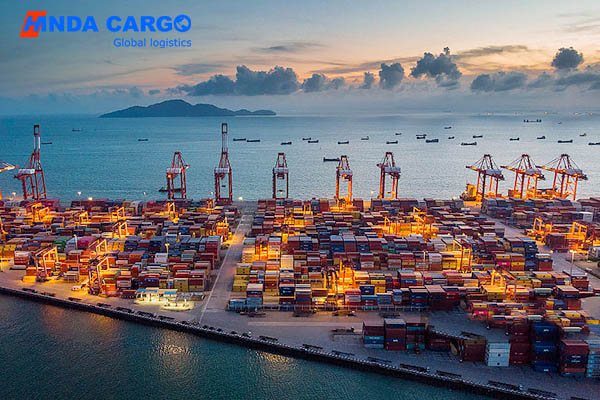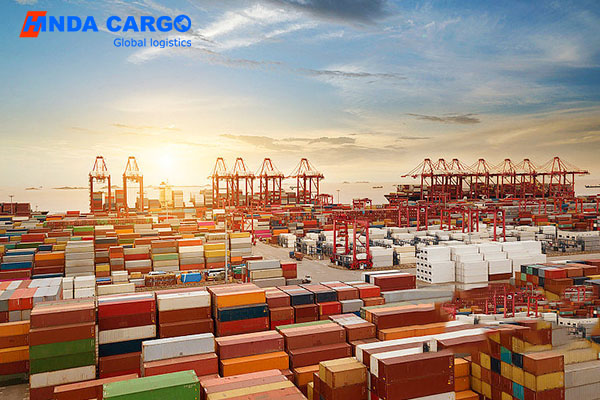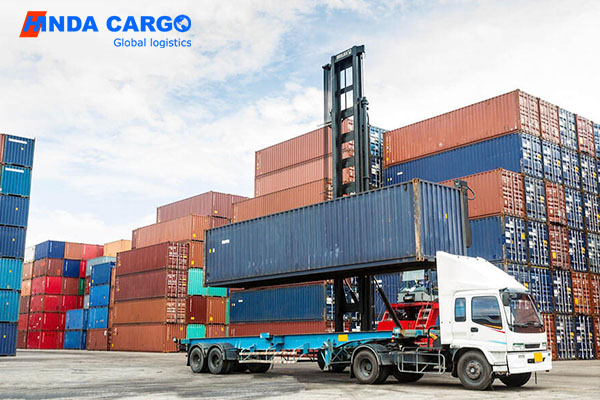What are the advantages of LCL and FCL in international freight?
The rapid development of international trade has made the flow of goods around the world increasingly frequent. In the process of transporting goods from one country to another, how to choose the right mode of transportation directly affects the cost, efficiency and safety. In sea transportation, LCL (Less than Container Load, LCL) and FCL (Full Container Load, FCL) are two common modes of freight. They each have their own advantages and are suitable for different cargo flow needs.
So, in international freight, what are the advantages of LCL and FCL? This article will deeply analyze the characteristics of these two modes of transportation to help readers better understand their applicable scenarios and advantages and disadvantages.

What are the advantages of FCL?
Full container load (FCL) means that the owner rents the entire container alone to transport goods. FCL is widely used in international trade, especially for large quantities of goods or goods that require special handling.
The following are the core advantages of FCL transportation:
1. High transportation efficiency
2. Improve cargo safety
3. Effective cost control
4. Transportation flexibility
High transportation efficiency
One of the biggest advantages of FCL transportation is efficiency. Since the goods transported by FCL come from the same shipper, the entire container does not need to be mixed with other goods during loading, transportation and unloading. Therefore, the goods can be shipped directly after loading, and there is no need to unpack and redistribute when unloading at the destination. This method reduces the complexity of the intermediate links and greatly improves transportation efficiency.
The speed of FCL transportation is particularly important in the transportation of goods with high timeliness requirements. The owner does not need to wait for the goods of other shippers to fill the box, which means that the delivery time can be arranged flexibly. Once the goods are packed, the owner can arrange the departure directly according to his own needs.
Improve cargo safety
Another important advantage of FCL transportation is the higher safety of the goods. Since the goods in the container are completely owned by the same owner, the goods will not be affected by other goods during transportation. In contrast, the goods in LCL transportation are mixed with the goods of other companies, which poses risks such as bumps and contamination.
FCL also reduces the number of operations in transit and loading and unloading. After the goods are loaded into the container from the place of shipment, they are usually sent directly to the destination for unpacking, avoiding frequent loading and unloading operations, thereby reducing the risk of damage or loss of goods. This is especially important for high-value goods, fragile goods, or goods with special safety requirements.
Effective cost control
Although the absolute cost of FCL transportation may be higher in a single transport, when the quantity of goods is large, the unit cost of FCL transportation is often lower than that of LCL transportation. For large-volume exporters or importers, FCL transportation can save a lot of money because they do not have to pay additional expenses such as management fees and sorting fees for sharing boxes with others. In addition, due to the reduction of transit and loading and unloading operations, FCL transportation can also reduce the costs caused by additional operations.
Transportation flexibility
FCL transportation has greater flexibility in route selection, shipment schedule and logistics scheduling. Since the goods in the container belong entirely to one consignor, the transportation company can design the best transportation route according to the requirements of the consignor and fully consider the customs clearance and logistics arrangements at the destination when shipping. This customized mode of transportation is especially suitable for companies that need to precisely control the supply chain.

What are the advantages of LCL?
LCL, or Less than Container Load (LCL), means that the goods are not enough to fill a container and need to be shipped together with the goods of other shippers. This method is usually suitable for small and medium-sized enterprises or traders with small cargo volumes. LCL also has its unique advantages in international freight, especially when the cargo volume is small and flexible arrangements are required.
The following are the core advantages of FCL:
1. Save transportation costs
2. More flexible shipping arrangements
3. Suitable for small and medium-sized enterprises
4. Environmental protection and resource optimization
Save transportation costs
One of the biggest advantages of LCL is saving transportation costs. For shippers with small cargo volumes that cannot fill a full container, choosing FCL is obviously not economical. LCL allows shippers to pay according to the volume and weight of the goods, without having to pay for the space of the full container. This method allows small and medium-sized enterprises and importers with small cargo volumes to participate in international trade at a lower cost.
The cost savings of LCL transportation are not only reflected in the cost of renting containers, but also in various logistics costs such as ocean freight, storage fees, loading and unloading fees. Shippers only need to pay for the part of the box they occupy, which is very friendly to those companies that ship frequently but have a small number of goods in a single batch.
More flexible shipping arrangements
Another significant advantage of LCL transportation is the flexibility of shipping arrangements. Since the goods shipped in LCL come from different shippers, the transportation company will flexibly dispatch them according to the quantity and demand of the goods. In the case that FCL transportation requires enough goods to fill the container, LCL transportation allows shippers to not wait for the goods to accumulate to a certain amount before shipping.
This flexibility is very important for companies that operate fast-moving consumer goods, seasonal goods or new product trial sales. The flexibility of LCL transportation allows them to respond quickly to market demand and deliver goods to the destination in a timely manner without occupying a large amount of capital and inventory.
Suitable for small and medium-sized enterprises
LCL transportation is particularly suitable for small and medium-sized enterprises with small cargo volumes. When operating in the international market, these companies often do not have the ability to ship on a large scale, and are unwilling to pay the high cost of FCL transportation for a small amount of goods. Through LCL transportation, small and medium-sized enterprises can enter the international market at a lower cost and compete with large enterprises.
LCL transportation enables small and medium-sized enterprises to flexibly adjust logistics plans, reduce inventory pressure, and explore or expand overseas markets with a smaller capital investment. This not only reduces the logistics costs of small and medium-sized enterprises, but also improves their competitiveness in the global market.
Environmental protection and resource optimization
In the context of global promotion of sustainable development, LCL transportation has another advantage that cannot be ignored: resource optimization and environmental benefits. LCL transportation reduces the space wasted due to the incompleteness of a single container by concentrating the goods of multiple shippers in one container, thereby increasing the loading rate of transportation. This practice not only reduces transportation costs, but also reduces the carbon emissions of ships, aircraft and other means of transportation, which helps to protect the environment.
In addition, LCL transportation helps to make full use of containers and avoid unnecessary energy consumption, which is in line with the concept of modern enterprises pursuing sustainable development. For companies that focus on corporate social responsibility, LCL transportation provides an economical and environmentally friendly option.

What are the applicable scenarios for FCL transportation and LCL transportation?
After understanding the advantages of FCL transportation and LCL transportation, the choice of which transportation method also depends on the specific business needs and cargo characteristics. The following are typical application scenarios of the two modes of transportation to help companies make wise decisions in actual operations.
Scenarios suitable for FCL transportation
● Large-volume goods: If the quantity of goods is enough to fill a container, FCL transportation is obviously a more suitable choice. For bulk commodity exports, industrial raw material transportation, etc., FCL transportation can provide efficient logistics services at a lower unit cost.
● High-value goods: For those high-value, fragile or special handling goods, such as electronic products, luxury goods or mechanical equipment, FCL transportation provides higher security and reliability. Since the goods do not share space with other shippers, the safety of the goods is better guaranteed.
● Goods with high timeliness requirements: If the goods need to be delivered to the destination at a specific time, FCL transportation is usually the best choice due to its high flexibility and transportation efficiency. FCL transportation reduces the waiting time for assembly and subassembly, and can deliver the goods to the destination faster.
Scenarios suitable for LCL transportation
● Small-volume goods: For companies with small quantities of goods and a single shipment that cannot fill a container, LCL transportation is a more economical choice. Especially for small and medium-sized enterprises or companies that have just entered the international market, LCL transportation can effectively reduce logistics costs.
● Flexible delivery needs: LCL transportation is particularly suitable for those companies that need to ship frequently but the volume of each batch is not large. It can flexibly respond to market demand and allow companies to ship goods overseas in a timely manner with less capital investment.
● Multi-destination delivery: If the cargo owner's goods need to be shipped to multiple destinations, LCL transportation is also more suitable. Different consignees can share a container, which will be distributed and delivered after arriving at different ports, avoiding the high cost of renting a full container multiple times.




